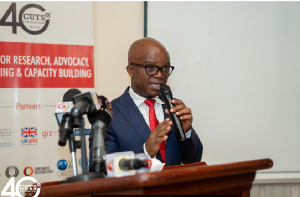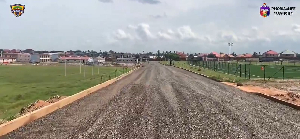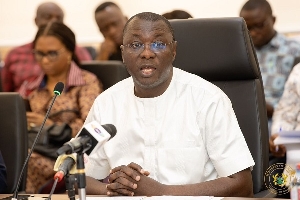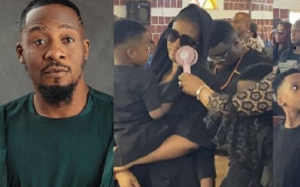General News of Friday, 5 February 2021
Source: happyghana.com
Empower households to produce their own facemasks – GHS tells CSOs, NGOs
The Ghana Health Service (GHS) has urged Non-Governmental Organizations (NGOs) and Civil Society Organizations (CSOs) to empower households to produce their own facemasks.
The GHS believes that this initiative can promote the wearing of facemasks among Ghanaians as COVID-19 cases are on the increase.
Director of Health Promotions at the Ghana Health Service, Dr. Aboagye Dacosta, in an interview with Sefa Danquah on the ‘Epa Hoa Daben’ show said: “The NGOs and CSOs must empower households in making their own facemasks. The facemasks are very important. One facemask comes at a cost of one Ghana cedi. If everyone must purchase it then it is necessary to empower homes to make their own face covering to fight the pandemic. This is so that in terms of access, we can all get access to face-covering”.
Dr. Dacosta was confident that if this collective effort are put in place, then the goal of the GHS in ensuring that people adhere to the protocols and are thereby protected will be realized.
In his submission, he reminded listeners of the rule on the mandatory wearing of facemasks; of which one could face consequences should they disregard the law.
“In this pandemic we have an Executive Instrument (EI) that gives the punishment for those who don’t wear facemasks. That is why the police can arrest you for not wearing facemasks. The police enforces the law but why would you wait for the police to enforce the law? That is why education is needed”, he added
*Mandatory Use of Face Coverings in Public*
President Akufo-Addo on June 15, 2020, signed Executive Instrument 164, outlining the mandatory use of face coverings in public. Anyone who fails to wear a facemask in public will face a fine of between GH¢12,000 and GH¢60,000, or a term of imprisonment of between four and ten years. Accordingly, the police have been empowered to conduct random compliance and enforcement checks.
Ghana’s COVID-19 cases stand at 5,786 with 433 deaths.













